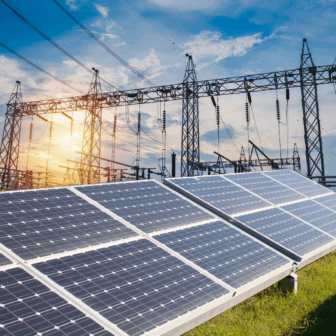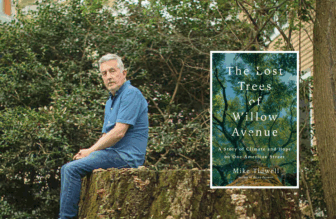By Rachel S. Karas
Local and state environmental activists joined around 150 area residents at Hood College on Nov. 18 to protest natural gas projects in Frederick County and on the Eastern Shore.
The Chesapeake Climate Action Network, a grassroots nonprofit organization working against global warming in Maryland, Virginia and Washington, visited the school with one message in mind: “Clean energy, not Cove Point.”
The group traveled to nine cities across Maryland to oppose Virginia-based Dominion Resources’ plan to build a liquefied natural gas export facility on the Chesapeake Bay. They claim the Cove Point project is tied to a Dominion subsidiary project to build a gas compressor station in Myersville, which could feed gas to Cove Point to be shipped overseas.
CCAN director Mike Tidwell led the discussion with a presentation on hydraulic fracturing, or fracking, a technique that shoots water, sand and chemicals at high pressure to clear old wells or crack rock formations to free oil. He said the process is substantially more harmful to humans and the environment than Dominion purports.
A panel of activists, including Tidwell, Myersville Citizens for a Rural Community vice president Ann Nau, Paul Roberts of the Governor’s Marcellus Shale Advisory Commission and Dan Andrews of the Sierra Club’s Catoctin Group, then addressed the Myersville project and other audience questions.
Dominion spokesperson Dan Donovan said in an email that the two projects are not related, and that the natural gas compressor station is part of another, separate project of Dominion Transmission Inc. and is not moving gas to Cove Point.
“It is needed to move additional supplies of natural gas to two customers, Washington Gas Light (Frederick Gas) and Baltimore Gas & Electric,” Donovan wrote.
Nau said his response is a deception showing only part of the compressor station’s purpose.
“Of course they are (related),” Nau said. “The amount of capacity needed to supply those two is far less than what a 16,000-horsepower facility supplies.”
Panelists said that gas not sent to Frederick Gas and Baltimore Gas and Electric will be piped to Cove Point. It’s easier for them to push the project through the approval process if they claim they’re separate for now, Nau said.
Donovan also said in the email that any new air emissions will be in compliance with clean air regulations.
“Two natural gas-fired, highly efficient turbines will be built on-site to drive the main refrigerant compressors that are needed to cool the natural gas,” he wrote. “These turbines will be similar in size to others that are being built in Maryland and must meet the same environmental regulations.”
Tidwell said that means the company will buy emissions credits elsewhere to offset the pollution, while the health impact will fall entirely on Calvert County citizens.
He urged the audience to write to state and federal representatives about the issue. Tidwell would like to see Maryland derive 40 percent of its energy from renewable sources by 2025, double the state’s current goal.
The Myersville citizens’ group filed a brief in the U.S. court of appeals for the D.C. circuit on Nov. 13 alleging that the Federal Energy Regulatory Commission’s approval of the compressor station was illegal and will endanger residents.
“It would be nice if the certificate (of approval) was null and void and sent back to FERC,” said Ted Cady, of MCRC. “FERC is a completely broken agency with no oversight.”
Other Myersville residents aren’t optimistic.
“I feel like everything is stacked against the people,” said Tammy Mangan. “There’s no common sense, no searching for the facts … . It’s a system set up in favor of industry.”





